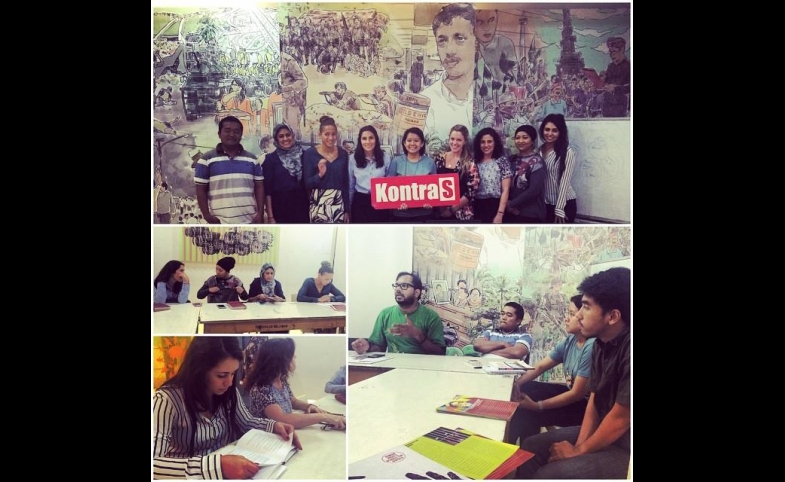I was delighted to read the CPD Blog written by Anja Eifert on Indonesia as an Example of 21st Century Economic Statecraft. It fits well with my research, The Public Diplomacy of Emerging Powers: Insights...
KEEP READINGThe CPD Blog is intended to stimulate dialog among scholars and practitioners from around the world in the public diplomacy sphere. The opinions represented here are the authors' own and do not necessarily reflect CPD's views. For blogger guidelines, click here.

MPD in Indonesia: The Power of Non-State Actors in an Emerging Nation
Note from the CPD Blog Manager: The CPD Blog is featuring a series of dispatches from the USC Master of Public Diplomacy research trip to Indonesia. Learn about the trip here.
Human rights NGOs, as non-state actors, work to protect and support the world’s most vulnerable populations. They give a voice to those that are oppressed and not being sufficiently heard among local and global audiences. When NGOs increase their use of public diplomacy, they amplify the voices of communities that have experienced human rights violations so they reach the ears of those who have the power to create change. In the end, this holds governments more accountable for respecting human lives and dignity when making political and economic decisions.
While the histories and cultures of Indonesia and Argentina are vastly different, these NGOs find that there is overlap where they find common experience and goals.
A visit to the NGO KontraS gave our team a look at how Indonesian non-state actors use public diplomacy in an era of internet connectivity and globalization. Founded 17 years ago at the end of the Suharto regime, KontraS originally “addressed issues of state-sponsored abductions and enforced disappearances.” Today the organization is a leader in “dismantling the use of violence and defending human rights” in Indonesia, as well as in other nations around the world.
KontraS’ staff gave us a first-hand look into how the NGO both speaks as an independent entity monitoring government actions, as well as an ally to governments that count on them for human rights expertise. This delicate balancing act is one that is shared by human rights monitoring groups all over the world. So, KontraS exchanges knowledge and resources with international human rights groups. This strengthens KontraS and gives global NGOs promoting human rights an opportunity to learn from one another and enhance the impact of their important work throughout the globe.
For example, Las Madres de Plaza de Mayo, “an Argentine association of mothers whose children were ‘disappeared’ during the Dirty War of Argentina’s military dictatorship,” has traveled to Indonesia to meet with KontraS. KontraS works with Indonesian families whose loved ones “disappeared” prior to the fall of the Suharto regime. While the histories and cultures of Indonesia and Argentina are vastly different, these NGOs find that there is overlap where they find common experience and goals. Ultimately, when they exchange best practices and expertise, they can learn from each other and better protect human rights in both countries.
KontraS boosts its international engagement, resource development and policy change opportunities through its presence on social media. They have more than 54,000 followers on Twitter, where they communicate with international publics about abolishing the death penalty, stopping land grabs and protecting rights to free expression. Still, it appears that KontraS’s social media efforts have much room to grow before they truly maximize results for the organization. The question is: What keeps KontraS from fully utilizing social media, and what can be done to enable them to take more advantage of the benefits of new technologies? Our team’s upcoming report will address these issues and provide recommendations that KontraS and other NGOs and non-state actors can consider to make the most of what social media engagement can accomplish.
Nelson Mandela said, “To deny people their human rights is to challenge their very humanity.” Public diplomacy practitioners now have more opportunity than ever before to uphold that humanity via NGOs and other non-state actors.
Visit CPD's Online Library
Explore CPD's vast online database featuring the latest books, articles, speeches and information on international organizations dedicated to public diplomacy.
POPULAR ARTICLES
-
January 29
-
January 20
-
December 17
-
January 28
-
December 15
Join the Conversation
Interested in contributing to the CPD Blog? We welcome your posts. Read our guidelines and find out how you can submit blogs and photo essays >.













